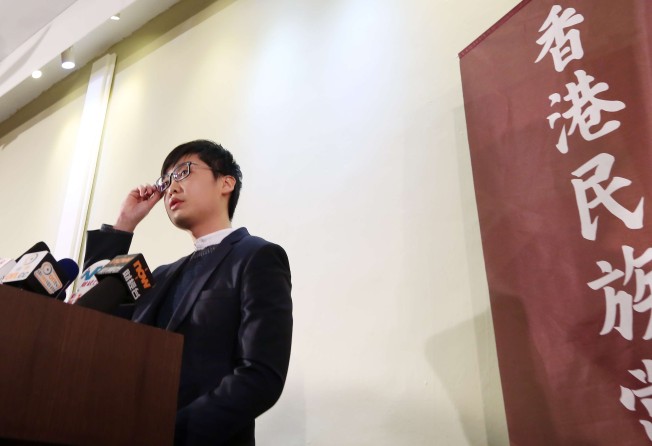An open debate is the best way to curb talk of independence
The idea of an independent Hong Kong is neither feasible nor constitutional, but clamping down on free speech is not the answer

The controversy surrounding the rise of pro-independence forces in Hong Kong continues to rage, with growing calls for a government crackdown before mere talk turns into something more sinister. While independence is neither feasible nor constitutional, there appears to be nothing in the law that prohibits peaceful discussion of such an idea.
The suggestion that public discussion of the topic should be banned has therefore raised concerns. There are critics who have urged the government to take legal action against some groups, saying the advocacy of independence contravenes the sedition law. In response, justice minister Rimsky Yuen Kwok-keung said the authorities were examining the relevant laws. Chief Executive Leung Chun-ying yesterday also weighed into the debate and warned that the community would suffer political and economic damage as a result of such movements.
Politically, Beijing and the Hong Kong government cannot be seen as turning a blind eye to the potential threat to national unity. This is reflected in the toughened rhetoric by officials on both sides of the border. It would be worrying if the movement gains further momentum. The government’s study is a necessary step in the wake of growing pressure. Whether it will lead to any concrete legal action will be closely followed by the community.
It should be noted that legislation against sedition and secession date back to the colonial era. Draconian as they are, the laws are invoked only when a person intends to achieve a seditious objective by causing violence or creating public disorder. Even officials in charge of the then Article 23 national security legislation were of the view that the provisions needed to be amended to ensure that peaceful advocacy of political causes should not be criminalised.
Admittedly, freedom of speech is not absolute. It is subject to legal test, as in the case of defamation and obscenity. But it can be argued that as long as no use of force or unlawful means are involved, there is no reason why politically sensitive issues cannot be openly discussed. This is, after all, what sets us apart from the mainland.
That independence goes against the Basic Law is a fact. Our future hinges on the successful implementation of the “one country, two systems” principle, the essence of which lies in maintaining the city’s freedoms and way of life while being an inalienable part of China. By allowing an informed debate on such a sensitive topic, hopefully more people will realise that independence is not the way forward.